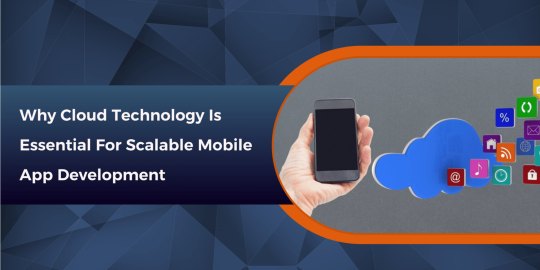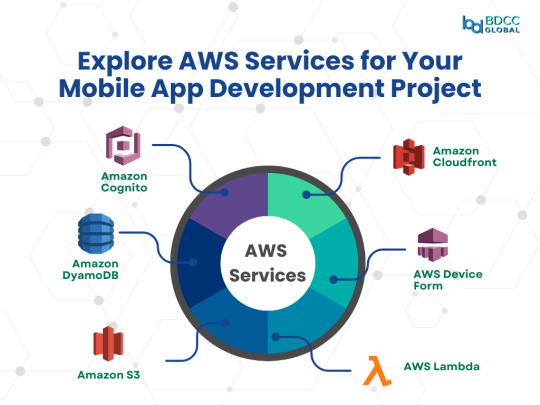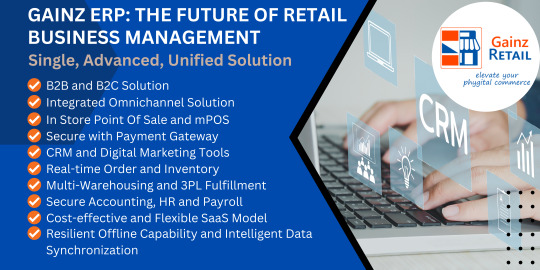#App development in the cloud
Explore tagged Tumblr posts
Text
Why Cloud Technology is Essential for Scalable Mobile Apps

1. Introduction
As mobile applications continue to evolve and grow in popularity, ensuring their scalability becomes more critical than ever. The capacity to handle increasing loads and provide a seamless user experience is no longer just a technical challenge; it’s a business imperative. Cloud technology has emerged as a key solution to these challenges, offering the flexibility and resources necessary for scalable mobile app development. In this article, we’ll explore why cloud technology is essential for scalable mobile app development, with a focus on custom mobile app development in Saudi Arabia.
2. Understanding Cloud Technology
Cloud technology involves utilizing remote servers accessed online to store, manage, and process data, instead of depending on local servers or personal devices. It has revolutionized the way mobile applications are developed, offering a range of services that cater to the needs of developers and businesses alike.
2.1 Types of Cloud Services
Three primary cloud service models exist:
Infrastructure as a Service (IaaS): Offers virtual computing resources delivered over the internet. Developers can rent virtual machines, storage, and networks, allowing them to scale resources up or down as needed.
Platform as a Service (PaaS): Offers a platform for developers to build, deploy, and manage applications, easing the scaling process without the need to manage the underlying infrastructure.
Software as a Service (SaaS): Delivers software applications online on a subscription model. Users can access these applications via the web without managing the infrastructure or platform.
2.2 Benefits of Cloud Technology
Cloud technology offers numerous benefits that make it indispensable for modern mobile app development:
Scalability: Cloud services can quickly scale to accommodate increasing traffic or data loads, ensuring that apps remain responsive and efficient.
Flexibility: Developers can deploy and manage apps across multiple regions and platforms, providing users with consistent experiences regardless of location.
Cost-Efficiency: With pay-as-you-go pricing models, businesses can optimize costs by paying only for the resources they use, avoiding the need for significant upfront investments.
3. Importance of Scalability
Scalability is the ability of a mobile app to handle a growing number of users and transactions without compromising performance. In markets like Saudi Arabia, where mobile app usage is on the rise, scalability is crucial for maintaining user satisfaction and ensuring long-term success.
3.1 Challenges in Traditional Scaling
Traditional scaling methods, such as adding more physical servers or upgrading existing hardware, can be both expensive and time-consuming. They also often fail to provide the flexibility needed to adapt to sudden changes in demand, leading to performance issues and potential downtime.
4. Cloud Technology for Mobile App Scalability
Cloud technology addresses the limitations of traditional scaling by offering advanced tools and services that make it easier to scale mobile apps efficiently.
4.1 Elasticity and Auto-Scaling
Elasticity is a key feature of cloud computing, allowing resources to be automatically scaled up or down based on current demand. Auto-scaling ensures that mobile apps can handle traffic spikes without compromising performance, providing a seamless user experience.
4.2 Load Balancing and Traffic Management
Cloud-based load balancing distributes incoming traffic across multiple servers, preventing any single server from becoming overwhelmed. This not only improves app performance but also enhances its reliability and availability.
4.3 Data Management and Storage
Cloud services offer scalable data storage solutions that can accommodate vast amounts of data generated by mobile apps. These solutions are designed to be both secure and accessible, ensuring that app data is managed efficiently.
5. Custom Mobile App Development in Saudi Arabia
Saudi Arabia is experiencing rapid growth in mobile app usage, driven by a tech-savvy population and a strong economy. Custom mobile app development is essential for businesses looking to meet the specific needs of Saudi users and gain a competitive edge in the market.
5.1 Market Trends and Demands
The Saudi Arabian market is characterized by a high demand for innovative, user-friendly apps that cater to both consumers and businesses. As the government pushes for digital transformation under its Vision 2030 initiative, the demand for custom mobile apps is expected to increase significantly.
5.2 Considerations for Local Developers
Developers targeting the Saudi market must consider local preferences, cultural nuances, and regulatory requirements. Additionally, they must ensure that their apps are scalable to handle the growing number of users in the region.
6. Case Studies and Success Stories
To understand the impact of cloud technology on scalable mobile app development, we can look at successful case studies from around the world and within Saudi Arabia.
6.1 Global Case Study
An example of a global mobile app that successfully leveraged cloud technology for scalability is Netflix. By utilizing cloud services, Netflix can stream content to millions of users simultaneously, without interruptions or performance issues.
6.2 Saudi Arabian Case Study
In Saudi Arabia, the ride-hailing app Careem has become a success story by utilizing cloud technology to scale its operations. Careem’s cloud-based infrastructure allows it to handle millions of rides across the region, ensuring a smooth experience for both drivers and passengers.
7. Future Trends in Cloud and Mobile App Development
The future of mobile app development will be shaped by emerging trends in cloud technology, with a focus on enhancing scalability and user experience.
7.1 AI and Machine Learning in Cloud
Artificial Intelligence (AI) and Machine Learning (ML) are becoming increasingly integrated into cloud services, offering predictive analytics, personalized experiences, and improved decision-making capabilities. These technologies will play a critical role in enhancing the scalability of mobile apps.
7.2 The Rise of Edge Computing
Edge computing, which involves processing data closer to the source of data generation, is expected to revolutionize mobile app development. By reducing latency and improving real-time data processing, edge computing will enhance the scalability and performance of mobile apps.
8. Best Practices for Cloud Implementation
Successfully implementing cloud technology demands thorough planning and adherence to best practices, especially regarding scalability.
8.1 Security and Compliance
Ensuring data security and compliance with local regulations is paramount when using cloud services. Developers should implement robust security measures, such as encryption and multi-factor authentication, to protect app data.
8.2 Cost Management Strategies
Managing costs is a key concern for businesses using cloud services. By optimizing resource usage, leveraging cost management tools, and choosing the right pricing models, businesses can keep costs under control while scaling their apps.
9. Conclusion
Cloud technology has become essential for scalable mobile app development, offering the flexibility, efficiency, and resources needed to meet the demands of a growing user base. For businesses in Saudi Arabia, leveraging cloud services is key to staying competitive in a rapidly evolving market. By understanding the benefits and best practices associated with cloud technology, developers can create mobile apps that not only meet current demands but are also poised for future growth.
10. FAQs
Q1: What is cloud technology in mobile app development?Cloud technology involves utilizing remote servers accessed through the internet to store, manage, and process data. This enables mobile apps to scale efficiently and manage growing user demands.
Q2: Why is scalability important for mobile apps?Scalability ensures that a mobile app can handle an increasing number of users and transactions without compromising performance, which is crucial for maintaining a positive user experience.
Q3: How does cloud technology enhance app scalability?Cloud technology provides features like elasticity, auto-scaling, and load balancing, which allow mobile apps to scale dynamically in response to changing demand.
Q4: What are some challenges of traditional scaling methods? Traditional scaling methods, such as adding more physical servers, can be costly, time-consuming, and inflexible, making them less effective for modern mobile apps. Q5: What are the key considerations for developing custom mobile apps in Saudi Arabia? Developers should consider local market trends, user preferences, cultural nuances, and regulatory requirements, as well as ensuring their apps are scalable to handle growing demand.
#Cloud-based app development#Scalable mobile apps#Cloud computing in app development#Mobile app scalability#Cloud infrastructure for apps#App development in the cloud#Scalable application architecture#Cloud technology for developers#Mobile app performance with cloud#Cloud-native mobile apps#App development scalability solutions#Cloud services for app developers#Benefits of cloud for mobile apps#Cloud-enabled app growth#Cloud computing for scalable apps
1 note
·
View note
Text
Empower Your Digital Presence with Cutting-Edge Frameworks
In today’s fast-evolving digital landscape, staying ahead requires more than just a functional website or application—it demands innovation and efficiency. At Atcuality, we specialize in Website and Application Framework Upgrade solutions tailored to your business goals. Whether you're looking to optimize performance, enhance user experience, or integrate the latest technologies, our team ensures seamless upgrades that align with industry standards. Transitioning to advanced frameworks not only improves loading speeds and scalability but also strengthens your cybersecurity measures. With Atcuality, you gain access to bespoke services that future-proof your digital assets. Let us elevate your online platforms to a new realm of excellence.
#ai applications#artificial intelligence#ai services#website development#website developer near me#website developers#website developer in india#web development#web design#application development#app development#app developers#digital marketing#seo services#seo#emailmarketing#search engine marketing#search engine optimization#digital consulting#virtual reality#vr games#vr development#augmented reality#augmented and virtual reality market#cash collection application#task management#blockchain#metaverse#cloud computing#information technology
5 notes
·
View notes
Text
WordPress Security Services Tailored to Your Business Needs
Atcuality understands that every WordPress website has unique security needs. Our specialized WordPress security services provide customized solutions to safeguard your website from malicious attacks, unauthorized access, and technical vulnerabilities. Whether you own a blog, corporate website, or online store, our comprehensive approach includes malware scanning, vulnerability patching, firewall implementation, and site backups. Atcuality’s team of security professionals works tirelessly to monitor and eliminate threats before they can impact your business. With advanced tools and strategies like SSL encryption and uptime monitoring, we ensure your website operates securely while maintaining peak performance. Cyber threats evolve daily, but with Atcuality, you can stay one step ahead. Don’t let your website become a target—secure your site and maintain customer trust with our proven WordPress security solutions.
#seo marketing#seo services#artificial intelligence#digital marketing#iot applications#seo company#seo agency#amazon web services#azure cloud services#ai powered application#ai applications#ai app development#virtual reality#vr development#vr games#wordpress#web developers#web development#web design#web developing company#website developer near me#wordpress development#web hosting#website#augmented and virtual reality market#augmented human c4 621#augmented intelligence#augmented reality#iot#iotsolutions
3 notes
·
View notes
Text
A Few Ways That Cloudways Makes Running This Site a Little Easier
New Post has been published on https://thedigitalinsider.com/a-few-ways-that-cloudways-makes-running-this-site-a-little-easier/
A Few Ways That Cloudways Makes Running This Site a Little Easier
It’s probably no surprise to you that CSS-Tricks is (proudly) hosted on Cloudways, DigitalOcean’s managed hosting arm. Given both CSS-Tricks and Cloudways are part of DigitalOcean, it was just a matter of time before we’d come together this way. And here we are!
We were previously hosted on Flywheel which was a fairly boutique WordPress hosting provider until WP Engine purchased it years back. And, to be very honest and up-front, Flywheel served us extremely well. There reached a point when it became pretty clear that CSS-Tricks was simply too big for Flywheel to scale along. That might’ve led us to try out WP Engine in the absence of Cloudways… but it’s probably good that never came to fruition considering recent events.
Anyway, moving hosts always means at least a smidge of contest-switching. Different server names with different configurations with different user accounts with different controls.
We’re a pretty low-maintenance operation around here, so being on a fully managed host is a benefit because I see very little of the day-to-day nuance that happens on our server. The Cloudways team took care of all the heavy lifting of migrating us and making sure we were set up with everything we needed, from SFTP accounts and database access to a staging environment and deployment points.
Our development flow used to go something like this:
Fire up Local (Flywheel’s local development app)
Futz around with local development
Push to main
Let a CI/CD pipeline publish the changes
I know, ridiculously simple. But it was also riddled with errors because we didn’t always want to publish changes on push. There was a real human margin of error in there, especially when handling WordPress updates. We could have (and should have) had some sort of staging environment rather than blindly trusting what was working locally. But again, we’re kinduva a ragtag team despite the big corporate backing.
The flow now looks like this:
Fire up Local (we still use it!)
Futz around with local development
Push to main
Publish to staging
Publish to production
This is something we could have set up in Flywheel but was trivial with Cloudways. I gave up some automation for quality assurance’s sake. Switching environments in Cloudways is a single click and I like a little manual friction to feel like I have some control in the process. That might not scale well for large teams on an enterprise project, but that’s not really what Cloudways is all about — that’s why we have DigitalOcean!
See that baseline-status-widget branch in the dropdown? That’s a little feature I’m playing with (and will post about later). I like that GitHub is integrated directly into the Cloudways UI so I can experiment with it in whatever environment I want, even before merging it with either the staging or master branches. It makes testing a whole lot easier and way less error-prone than triggering auto-deployments in every which way.
Here’s another nicety: I get a good snapshot of the differences between my environments through Cloudways monitoring. For example, I was attempting to update our copy of the Gravity Forms plugin just this morning. It worked locally but triggered a fatal in staging. I went in and tried to sniff out what was up with the staging environment, so I headed to the Vulnerability Scanner and saw that staging was running an older version of WordPress compared to what was running locally and in production. (We don’t version control WordPress core, so that was an easy miss.)
I hypothesized that the newer version of Gravity Forms had a conflict with the older version of WordPress, and this made it ridiculously easy to test my assertion. Turns out that was correct and I was confident that pushing to production was safe and sound — which it was.
That little incident inspired me to share a little about what I’ve liked about Cloudways so far. You’ll notice that we don’t push our products too hard around here. Anytime you experience something delightful — whatever it is — is a good time to blog about it and this was clearly one of those times.
I’d be remiss if I didn’t mention that Cloudways is ideal for any size or type of WordPress site. It’s one of the few hosts that will let you BOYO cloud, so to speak, where you can hold your work on a cloud server (like a DigitalOcean droplet, for instance) and let Cloudways manage the hosting, giving you all the freedom to scale when needed on top of the benefits of having a managed host. So, if you need a fully managed, autoscaling hosting solution for WordPress like we do here at CSS-Tricks, Cloudways has you covered.
#Accounts#app#arm#automation#Blog#CI/CD#Cloud#cloudways#Conflict#CSS#css-tricks#Database#deployment#development#digitalocean#dropdown#easy#engine#enterprise#Environment#Events#Forms#friction#github#Giving#gravity#Hosting#hosting provider#human#incident
2 notes
·
View notes
Text
Trusted outsource software development teams - SSTech System

Outsource software development is the practice of relinquishing software-related duties to outside singularities or organizations. Outsourcing is used by firms to acquire software services and products from outside firms that do not have direct employees or employees under contract to the business entity that is outsourcing.
Infect, the outsourcing market worldwide is projected to grow by 8.28% (2025-2029) resulting in a market volume of US$812.70bn in 2029. This model is highly versatile and suits businesses of all sizes.
Start-ups often use outsourcing to develop MVPs quickly, while established companies might seek custom software development services or AI outsourcing services to address complex challenges. Outsourcing can include working with offshore development teams, global software development partners, or local experts like Australian software development experts for specific projects.
The benefits of outsourcing software development
Outsourcing has become a cornerstone for modern businesses due to its numerous advantages. Here’s a closer look at the key benefits:
1. Cost efficiency
Perhaps the biggest incentive for sourcing solutions from outsourcing service providers is the cost cutting factor. For instance, offshore software development in India provides expertise services at comparatively lower cost than that of in-house developed services in Western countries. This efficiency enable the enactments of cost savings in some other strategic sectors of the organization.
2. Access to global talent
Outsourcing can help to discover the wealth of new talents as well as the skills of professionals from other countries. No matter Whether it’s AI and machine learning integration, web application development in Australia, or outsourced healthcare software development, businesses can find experts in virtually any domain.
3. Scalability and flexibility
Outsourcing offers flexibility that is unparalleled in many organizations today. This is because; firms are able to expand and contract particular teams depending on the specific demand in projects. For example, outsourced IT solutions help business organizations prepare for different conditions while not having to employ permanent workers.
4. Faster time-to-market
With reliable software development teams in Australia or offshore development teams in India, businesses can speed up their project timelines. This helps innovations to make it through to the market early enough, which is useful for companies.
5. Focus on core activities
By delegating tasks like software maintenance and support or cloud software development in Australia to outsourcing partners, businesses can focus on their core competencies and strategic goals.
6. Reduced risk
In-house staff and trained outsourcing partners come with best practices, methods and procedures which when implemented reduce the chances of project hitch. Working with the top-rated IT outsourcing companies in Australia gives you confidence that your project is in safe hands.
Choosing the right outsourced software development partner

In the period from 2023 to 2027, the revenue of software outsourcing is forecasted to thrive at a CAGR of 7.54%. So, outsourcing partner selection is one of the most vital components since it determines the success of a given venture. Here are essential factors to consider:
1. Technical expertise
Check the partner’s competency and his knowledge of the field. For instance, SSTech System Outsourcing offers comprehensive solutions, from AI development services in India to mobile app development outsourcing in Australia.
2. Proven track record
Look for partners with a strong portfolio and positive client testimonials. A proven track record in delivering custom software development services or managing outsourcing software development contracts is a good indicator of reliability.
3. Effective communication
Effective and open communication is extremely important if the project is to be successful. Work with people who give frequent reports and employ efficient media to overcome the differences in time areas.
4. Cultural compatibility
There has to be a cultural match or at least appreciation for each other’s customs for there to be harmony in the working relationship. As such, staffed with proficient Australia software development experts or offshore development teams, whose experience is to work on global markets can coordinate and blend well with your work culture.
5. Security and compliance
You have to make sure that your partner complies with the standards and the policies that are in the industry. This is especially substantial for all information-sensitive projects such as outsourced healthcare software development or cloud software development in Australia.
6. Scalable infrastructure
Choose a partner capable of scaling their resources and infrastructure to meet your project’s evolving needs. This is crucial for long-term collaborations, especially with global software development partners.
AI-powered tools for outsourced development teams
According to a report from the US Bureau of Labor Statistics, software development ranks among the most sought-after professions. Hence, AI is at the forefront of reshaping the outsourcing industry. Therefore, the implementation of artificial intelligence will add value to business processes, make workflow easier, and boost the results of projects. Here are some examples:
1. Automated code reviews
Tools like DeepCode and SonarQube assist outsourced teams in detecting whether errors reside in the code line or not, and whether code needs to be enriched or not. This is particularly accurate concerning AI outsourcing and in-house development industries.
2. Predictive analytics
Automated analytics tools can predict such things as the time it will take to complete the project, how much money it will cost, and what risks are possible in a software development outsourcing scenario.
3. Smart project management
Tools and platforms such as Jira and Monday.com, when empowered with AI, allow the coordination of tasks and the tracking of progress and resource allocation.
4. AI collaboration tools
Communication and collaboration with internal members and offshore software development Australia partners get facilitated through applications that include, Slack, Microsoft Teams, and zoom with integrated AI functions.
5. Natural Language Processing (NLP)
AI-powered chatbots and virtual assistants simplify communication and issue resolution, making them valuable for managing outsourced IT solutions.
Best practices for managing outsourced development teams
Outsourced teams should be mandated and coordinated following a number of recommendations to ensure the efficiency of the entirety of the outsourcing process.
Here are the best practices to ensure your project’s success:
1. Set clear objectives
Make it clear to your project team, stakeholders, and other relevant parties what the parameters of the project are, what it is that you expect out of it, and what you expect to get from it in return. This fostaines consistency between your team and the outsourcing partner to increase efficiency in service delivery.
2. Choose the right tools
Use project tracking and collaboration software approaches to track and evaluate progress and meet regular informality and collaboration targets.
3. Foster a collaborative environment
It is worthy of note that constant communication is key to ensuring that your outsourcing team is on the same page with you. Fresh produce and feedback mechanisms need to be provided in order for there to be trust as is needed in project management.
4. Draft comprehensive contracts
There should be a comprehensive outsourcing software development contract. It should address issues to do with confidentiality, ownership of ideas and concepts, plea structure and mode of handling disputes.
5. Focus on long-term relationships
Building a long-term partnership with trusted providers like SSTech System Solutions can lead to consistent quality and better project outcomes.
Conclusion
To keep up with technology, outsourcing software development offers businesses solutions and support that can enable the creation of complex solutions out of mere ideas. Outsourcing has the benefits of minute overhead cost and is also a rich source of globally talented employees, and it offers the advantage of early time to market. Whether you’re looking for mobile app development outsourcing in Australia or seeking offshore software development in India or opting for AI outsourcing services, the potential is huge.
Such companies can only benefit from opting for reliable outsourcing companies such as SSTech System Outsourcing and embracing industry best practices to promote the success of business project implementations while enhancing market relevance. As technologies like AI and cloud computing are still changing the face of the outsourcing market, software development outsourcing will still be important for any company that wants to survive in a digital world.
Take the first step today—partner with global software development partners and unlock the full potential of your ideas with the power of outsourcing.
#SSTech System Outsourcing#SSTech System Solutions#AI outsourcing services#cloud computing#offshore software development#Outsource software development#AI outsourcing#web application development in Australia#custom software development services#mobile app development#outsourced IT solutions#cloud software development#IT Support & Maintenance Services
2 notes
·
View notes
Text
2 notes
·
View notes
Text
Best Tally, Cloud, App Development Services Provider | Cevious Technologies.
CEVIOUS was founded in 2009 in Delhi, having 14+ years of experience as a 5-Star Tally Sales, Service & GVLA Partner, catering to 12000+ customers & 4500 Tally License Host in our datacenter. We provide Tally Prime, Customization, Tally AWS Cloud, Datacenter Service, App Development and business automation solutions.
2 notes
·
View notes
Text

The Future of Software Development: Top Trends to Watch in 2024
Introduction:
The field of technology is always changing, but software creation is still at the cutting edge of brand-new ideas. As 2024 approaches, the trends that will shape the future of software development become more apparent. These trends will bring both exciting possibilities and challenges for businesses and workers. This blog post will talk about the most important trends to keep an eye on in 2024, covering everything from cloud-based solutions to custom software creation.
1. Custom Software Development
Custom software development is still an important part of modern businesses because it lets them make solutions that fit their exact needs. In 2024, we expect a huge increase in the need for unique software solutions as companies try to stand out in very competitive markets. Custom software development is the most adaptable and adjustable way to improve customer experiences or streamline internal processes. CodeRower specializes in creating custom software that enhances customer experiences and streamlines internal processes, making us a valuable partner for businesses looking to innovate.
2. Software Development Services
People are still looking for software development services because they need help and professionals to make cutting-edge apps. Outsourcing software development has become a smart choice for many companies, from startups to large corporations, that want to cut down on development time and time to market. CodeRower provides comprehensive software development services, enabling companies to leverage expert knowledge and achieve their goals efficiently.
3. Mobile App Development
Since smartphones and other mobile devices are becoming more popular, companies that want to connect with customers while they’re on the go still put a lot of emphasis on mobile app development. We think 2024 will be a big year for user-centred design and making new technologies like augmented reality (AR) and artificial intelligence (AI) work well.
4. Developers of Web Applications
Developers of Web applications are moving toward making experiences that are more engaging and flexible. Progressive web apps (PWAs) and single-page apps (SPAs) will likely become popular in 2024 as companies try to make the web faster and more interesting on all devices. CodeRower is at the forefront of this trend, ensuring that our web applications offer seamless user experiences.
5. Cross-device App Development
Making apps that work on multiple devices without any problems is possible with cross-platform app development, which has become more popular in recent years. By 2024, cross-platform tools like React Native and Flutter should have even better features, allowing developers to reach more people with less work.
6. Full-Stack Development
As of now, workers who are skilled in both front-end and back-end platforms are in high demand for full-stack development. They are seen as versatile and knowledgeable. There will be a greater need for full-stack coders who can offer complete solutions in 2024, so training and upskilling programs will be a big focus. CodeRower embraces this trend, equipping our team with diverse skills to handle both ends of development.
7. Web Design and Development
Web design and programming are very important for shaping the user experience and getting people to interact with your site. We expect to see a move toward simple and easy-to-use designs in 2024, with an emphasis on making things accessible and open to everyone. The digital world will also continue to change as new design trends like dark mode and neomorphism become more popular.
8. Cloud-Based Solutions
Modern infrastructure is built around cloud-based solutions, which are scalable, reliable, and cost-effective. We think that there will be even more movement toward cloud-native designs in 2024, with a focus on serverless computing and containerization. Multi-cloud and mixed-cloud methods are also becoming more popular, which will give companies more freedom and stability. CodeRower helps businesses adopt these solutions effectively, ensuring they maximize their cloud investments.
9. Continuous Integration and Continuous Deployment (CI/CD)
Continuous Integration and Continuous Deployment (CI/CD) techniques have changed the way software is developed by making it possible for teams to make code changes quickly and accurately. We expect a lot of people to use CI/CD processes in 2024, with a focus on automation, teamwork, and feedback loops. Employing CI/CD in their work processes can help companies release software more quickly and with higher quality.
10. Software testing and product testing
Software testing is still an important part of the development process because it makes sure that apps work as planned and meet quality standards. Automated testing systems and AI-driven testing tools will become more popular in 2024, making it easier for coders to find problems and fix them. For the whole development process, using shift-left testing methods will also help build a mindset of quality.
11. Custom Web App Development
When businesses hire custom web app developers, they want solutions that are made just for them and the problems and chances in their fields. Custom web apps are flexible, safe, and quick, and they can be used to make management systems inside the company or sites for customers. It’s going to be very popular to have custom web apps made in 2024 because companies will want to stay ahead of the competition and focus on digital change projects. CodeRower is well-equipped to deliver these tailored solutions.
12. Web Solutions
Many tools and services can be used to make web experiences that are live and engaging. Web tools, like e-commerce platforms and content management systems, help companies connect with customers, run their businesses, and grow. Developer tools, content management systems, and hosting services are likely to keep getting better in 2024, which will allow businesses to make web apps that are strong and flexible.
13. Develop Mobile Apps
Mobile apps are now essential for companies that want to reach people while they’re on the go and make the user experience better. Native mobile app development will be a big deal in 2024. To make sure users have a smooth and fast experience, developers will use platform-specific features and functions. Additionally, makers will be able to make new, feature-packed mobile apps by combining cutting-edge technologies like machine learning and blockchain.
14. App Development
The process of making apps for different devices, like phones, the web, and computers, is called app development. We expect a coming together of technologies and methods in 2024, which will make it easy for coders to make apps that work on multiple platforms. With the rise of low-code and no-code development platforms, companies can speed up the process of making apps and give regular people the tools they need to help make new solutions.
15. Emerging Technologies
Artificial intelligence (AI), machine learning (ML), bitcoin, and the Internet of Things (IoT) are just a few of the new technologies that will drastically change the way software is made in 2024. These technologies could completely change businesses, make tasks easier to do, and generate new ideas in all areas. AI and ML will be used more for predictive analytics, personalized experiences, and automating regular chores in 2024. Similarly, blockchain technology will keep shaking up old ways of doing business by making deals safe and clear, while IoT devices will make it easier to connect and gain insights from data.
16. Augmented Reality (AR) and Virtual Reality (VR) Development
Augmented reality (AR) and virtual reality (VR) have become powerful tools that could change many fields, from fun and games to education and healthcare. Hardware, software, and content creation tools will get better in 2024, which will lead to a lot of new AR and VR releases. AR and VR will be used more and more by businesses to make events more engaging, improve training programs, and connect with customers in fresh new ways.
17. Integration of Artificial Intelligence (AI) and Machine Learning (ML)
AI and ML are going to be very important in the future of software development, allowing smart automation, predictive analytics, and customized experiences. We expect to see more AI and ML built into software in 2024, as companies use data to make better decisions and run their businesses more efficiently. AI and ML will continue to change how software is made, used, and implemented, from robots and virtual helpers to recommendation engines and systems that look for scams.
18. Quantum Computing
Quantum computing is a big change in the way computers work. It can do processing that has never been seen before and could help solve hard problems that regular computers can’t. Future progress in quantum computing is expected to continue in 2024. This will have effects on software development in areas like security, optimization, and science modelling. Quantum computing isn’t being used by most people yet, but developers and businesses are starting to look into how it could be used and what it means for the future of software development.
19. Edge Computing
The rise of edge computing has made it possible for real-time processing and low-latency apps. Edge computing brings computer power closer to where the data is created. Edge computer technologies are likely to become more popular in 2024, especially in fields like IoT, manufacturing, and self-driving cars. Edge computing is an important part of the future of software development because it processes data closer to where it is created. This means that decisions can be made faster, bandwidth is used less, and dependability is improved.
20. DevOps and DevSecOps Practices
DevOps and DevSecOps practices are becoming more popular in software development because they help teams simplify processes, speed up delivery, and make security better. Further use of DevOps and DevSecOps methods is expected in 2024, due to the need for more cooperation, automation, and flexibility. DevOps and DevSecOps allow teams to create high-quality software faster and more safely by combining development, operations, and security into a single process. This meets the needs of today’s digital world, which is changing quickly.
21. Data Privacy and Security
Businesses and customers both care a lot about data privacy and security. Strong security measures are needed because of rising online risks and laws. Data protection and security will still be important in software development in 2024, with a focus on encryption, identification, and compliance. Developers will be very important in keeping private data safe and defence against new threats. They will do things like secure code, security testing, and vulnerability evaluations.
22. Low-Code and No-Code Development Platforms
Low-code and no-code development platforms have made software creation more accessible to everyone, letting business users and citizen coders make apps without needing to know a lot about coding. As businesses try to speed up their digital transformation efforts and meet the growing demand for custom software solutions, we expect the low-code and no-code market to continue to grow in 2024. Low-code and no-code systems help businesses quickly adapt to changing customer wants and market conditions by hiding complexity and cutting down on development time.
23. Ethics and Responsible AI
As AI and ML become more common, people are becoming more aware of the moral and social effects they can have. We think that ethics and responsible AI will get more attention in software development in 2024. Developers and companies will take more steps to make sure that AI-driven systems are fair, open, and accountable. Researchers will have to think about how their work affects other people and put ethics first throughout the whole development process. This includes methods to reduce bias and ethical AI models and standards.
24. Remote Collaboration and Distributed Teams
The move to working from home has completely changed how teams work together and talk to each other. In software development, distributed teams are now the rule. As companies get used to mixed work models and see the benefits of remote work, we expect them to put more money into tools and platforms for online teamwork in 2024. With tools like virtual whiteboarding, videoconferencing, project management, and version control, online collaboration platforms make it easy for teams to work together even when they are in different places. This encourages creativity, innovation, and efficiency.
25. Diversity and Inclusion in Tech
Inclusion and diversity have become very important issues in the tech industry, as more people realize how important different points of view and experiences are for fostering creativity and innovation. We expect that more will be done in 2024 to support diversity and inclusion in software development. For example, mentoring programs, diversity training, and hiring methods that are open to everyone will be given top priority by companies. Businesses can get the most out of their teams and encourage an atmosphere of innovation and success by making the workplace more fair and open to everyone.
In conclusion:
In 2024, the future of software development will be marked by new ideas, quick changes, and a never-ending quest for perfection. To stay competitive in today’s digital world, businesses and workers need to keep up with the latest trends and changes in everything from new technologies like AI and quantum computing to well-known practices like DevOps and data security. Software engineers can change the future of technology for years to come by being open to change, encouraging teamwork, and putting ethics and fairness first.
Are you ready to take your software development to the next level in 2024? At CodeRower, we specialize in custom software solutions tailored to your unique business needs. Whether you’re looking to enhance your mobile app, streamline your operations with cloud-based technologies, or integrate AI and machine learning into your processes, our expert team is here to help.
Contact us today to discuss how we can assist you in navigating the latest trends and achieving your development goals. Let’s build the future together!
#software development#app development#web app development#web development#android app development#ios app development#custom software development#game development#custom app development#blockchain development#full stack developer#website development#cloud computing
3 notes
·
View notes
Text

Summer Internship Program 2024
For More Details Visit Our Website - internship.learnandbuild.in
#machine learning#programming#python#linux#data science#data scientist#frontend web development#backend web development#salesforce admin#salesforce development#cloud AI with AWS#Internet of things & AI#Cyber security#Mobile App Development using flutter#data structures & algorithms#java core#python programming#summer internship program#summer internship program 2024
2 notes
·
View notes
Text

Boost Your Mobile App Development with AWS Services! 🚀 Discover the game-changing cloud solutions that can supercharge your project and deliver top-notch performance! 💡💼
2 notes
·
View notes
Text




🌊☁️💙 summer shades of blue
#anyways ive been so into photography again recently like ive always loved recording and photographing#the things happening around me like thats my role in the friend group#but i got a new app that puts that nostalgic disposable camera like graininess on everything#and you have to waitba day for them to 'develop' to see the pics#and its just really got me excited about photography again#and not that any of these are profound or even unique pics but i just love the sun and sky and clouds and water in the summer!!!
2 notes
·
View notes
Text
Build high-end Mobile Applications!
Connect Us Today: https://www.triviti.in/

#app development#cloud#web development#acceleration#migration#appdev#applicationdevelopment#modernization#digital#technology#partnershipopportunities
3 notes
·
View notes
Text

Gainz Retail ERP : The Future of Retail Business Management
We designed Gainz Retail ERP as an easy- to-use, retail business solution for in-store and online shopping.
Gainz Retail eliminates the hassle of maintaining multiple software for: POS - E-commerce - Accounting - Timesheet & Payroll
Let's show you how Gainz Retail ERP can manage your business with a single, advanced, unified solution.
for more details visit - https://www.odata.com/
#cloud erp#erp for small business#erp implementation#erp software#erpdevelopment#erpcompany#erp#erpsolutions#canada#sap erp#saas technology#saas application development#saascompany#saas software#saas app development company#retail pos software#retail store#retail business#retail erp software
2 notes
·
View notes
Text
Immersive Learning: The Power of VR in Training - Atcuality
At Atcuality, we believe that learning should be as dynamic as the challenges you face. That’s why our VR-based training solutions are transforming how individuals and teams acquire new skills. With VR, we simulate real-life environments, enabling learners to practice, adapt, and succeed without the consequences of real-world mistakes. Our solutions are cost-effective, scalable, and highly engaging, making them ideal for industries like healthcare, construction, and corporate training. Experience the unmatched advantages of immersive technology and give your team the tools they need to excel. Step into the future of education with Atcuality.

#seo services#seo marketing#artificial intelligence#seo company#seo agency#ai powered application#digital marketing#azure cloud services#iot applications#amazon web services#augmented human c4 621#augmented reality agency#augmented and virtual reality market#augmented intelligence#augmented reality#ai applications#ai app development#ai generated#technology#virtual reality#digital services#web development#web design#web developers#web developing company#website development#cash collection application#blockchain#metaverse#wordpress
3 notes
·
View notes
Text
The Impact of Cloud Computing on IT Companies

Cloud computing has changed the way we store and access data. The ability to store data remotely and access it from any location with an internet connection has transformed the way businesses operate. For IT companies, the impact of cloud computing has been particularly significant. In this blog post, we will explore the impact of cloud computing on IT companies in detail.
1.Increased Efficiency.
One of the biggest impacts of cloud computing on IT companies is the increased efficiency that it brings. With cloud computing, IT companies can automate many of their processes and workflows, reducing the need for manual intervention. This not only saves time and effort but also reduces the risk of errors and ensures consistency in operations.
Cloud computing also enables IT companies to scale their operations quickly and easily. They can add or remove resources on-demand, depending on their needs. This agility allows IT companies to respond quickly to changes in demand, ensuring that they can deliver high-quality services to their clients.
2.Improved Collaboration.
Another significant impact of cloud computing on IT companies is the improved collaboration that it enables. Cloud-based collaboration tools such as Google Docs and Microsoft Teams allow team members to work together in real-time, regardless of their location. This means that IT companies can collaborate more effectively with their clients, partners, and other stakeholders.
Cloud-based collaboration tools also enable IT companies to work more efficiently with remote teams. With the ability to share files and work on documents in real-time, remote teams can work together seamlessly, ensuring that projects are delivered on time and within budget.
3.Reduced Costs.
Cloud computing has also had a significant impact on the costs of IT companies. By leveraging cloud-based infrastructure and services, IT companies can reduce their capital expenditures and move to an operational expenditure model. This means that they only pay for the resources and services that they use, rather than having to invest in expensive hardware and software upfront.
Cloud computing also eliminates the need for IT companies to maintain their own infrastructure and data centres, reducing the costs associated with maintenance, upgrades, and security. Cloud providers handle these tasks, freeing up IT companies to focus on their core competencies and deliver high-quality services to their clients.
4.Enhanced Security.
Security is a critical concern for IT companies, and cloud computing has had a significant impact on the security landscape. Several measures are taken by cloud providers to protect their customer's data including encrypting their data, restricting access and detecting threats.
Cloud providers also employ teams of security experts who monitor their infrastructure and services 24/7, ensuring that any security issues are identified and addressed quickly. This level of security is often beyond the capabilities of individual IT companies, making cloud computing an attractive option for those looking to improve their security posture.
5.Improved Client Service.
Finally, cloud computing has had a significant impact on the service that IT companies can provide to their clients. Cloud-based services allow IT companies to deliver high-quality services to their clients, regardless of their location. This means that IT companies can serve clients in different regions, without the need for physical offices or infrastructure in those regions.
Cloud-based services also enable IT companies to offer flexible and scalable services to their clients. They can easily add or remove resources as needed, ensuring that their clients have access to the resources they need to support their business operations.
Conclusion
Cloud computing has had a significant impact on IT companies, enabling them to operate more efficiently, collaborate more effectively, reduce costs, enhance security, and improve client service. As cloud technology continues to evolve, we can expect to see even more significant impacts on the IT industry. IT companies that embrace cloud computing and leverage its benefits will be well-positioned to succeed in the increasingly competitive technology landscape.
#cloud computing#IT Company#software Development#cloud services#Custom Software Development#Mobile App Development
4 notes
·
View notes
Text
Appzotech Top Software Leading Company in USA
Welcome to AppzoTech a leading cloud service provider company in the USA In today's rapidly evolving digital landscape, it is essential for businesses to have a reliable and secure cloud infrastructure to support their operations. At AppzoTech, we understand the importance of cloud services and have developed our platform to offer the best possible solution to our clients.
Our cloud services are designed to meet the diverse needs of businesses of all sizes. Whether you are a small business or a large enterprise, we have the expertise and technology to help you grow and scale. Our services include Infrastructure as a Service (IaaS), Platform as a Service (PaaS), Software as a Service (SaaS), and much more.
At AppzoTech, is a devops consulting services in usa. We understand that security is paramount when it comes to cloud services. That is why we have implemented the highest level of security features to protect our clients' data. We use cutting-edge encryption technology to secure our clients' data and ensure that it is protected at all time.
AppzoTech, your go-to destination for top-notch Android and iOS app development services. Our team of skil led developers is committed to building innovative and user-friendly apps that will help businesses achieve their goals and reach new heights of success.
In today's digital age, having a mobile app for your business is more important than ever. With millions of people using smartphones and tablets, having a well-designed app can help you reach your target audience and stand out from the competition. we specialize in developing custom Android and iOS apps that are tailored to meet the specific needs of our clients.
your premier destination for top-quality UI/UX design and development services in the USA. We understand that in today's digital age, having an exceptional user interface (UI) and user experience (UX) is crucial for the success of any digital product we specialize in providing custom UI/UX design and development services that will help your business stand out in a crowded market.
Our team of skilled designers and developers has years of experience in creating intuitive and user-friendly interfaces for a wide range of digital products, including mobile apps, websites, and software applications. We work closely with our clients to understand their brand, target audience, and goals, to create a custom UI/UX design that is tailored to meet their specific needs.
#cloud service provider company in the USA#devops consulting services in usa.#Android and iOS app development services
4 notes
·
View notes